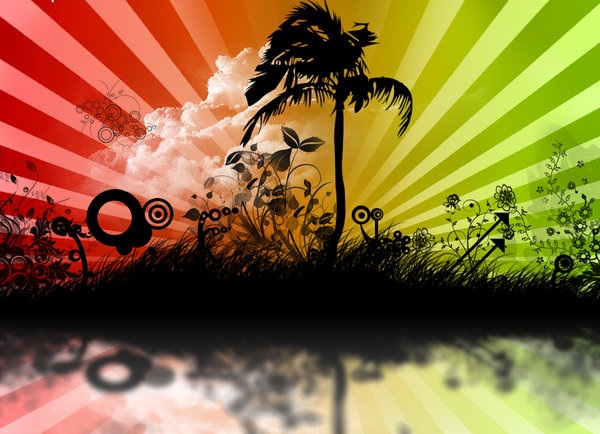Welcome Dust Off the Bible readers. As we approach what we Americans call the official start of summer, June 21st; or more accurately, June 20-22nd, depending on the year. Here is some information about this interesting day, where it came from, and why it matters to Christians.
Mechanics:  First things first, in a 4 season arrangement, June 21(ish) is the start of the summer season. However; in ancient culture where their are two primary seasons June 21st is actually the middle of summer, also known as the summer solstice. The summer solstice was the day of the year (in the northern hemisphere) when the sun is the closest to the earth. Depending on your region it would have been one of the hottest parts of the year.
First things first, in a 4 season arrangement, June 21(ish) is the start of the summer season. However; in ancient culture where their are two primary seasons June 21st is actually the middle of summer, also known as the summer solstice. The summer solstice was the day of the year (in the northern hemisphere) when the sun is the closest to the earth. Depending on your region it would have been one of the hottest parts of the year.
History
For cultures that still worshiped the sun you might imagine that this was an important day. In Egypt it was THE most important day of the year, bar none. This day was the start of the Nile flood season. It was celebrated as a festival of abundance as well as fertility.
In the ancient pagan cultures it was called Kupala. Kupala was a day of celebration for many things. Every culture had a different celebration at the summer solstice. Some celebrated it as a fertility festival, others for dedication to the god(s) over the coming harvest, and yet for others it was a celebration of love and more of a mating ritual.
Christian History
 What does the summer solstice have to do with Christianity? June 21st is also feast day of John the Baptist. That’s interesting huh? Some might think it a coincidence, except that nearly every Catholic feast day falls in one of the pagan feast days.
What does the summer solstice have to do with Christianity? June 21st is also feast day of John the Baptist. That’s interesting huh? Some might think it a coincidence, except that nearly every Catholic feast day falls in one of the pagan feast days.
The same is true of celebratory month for Mary (May) which serves as the Celtic tradition of new life and fertility festivals. We know it here simply as May Festival. Some might be interested in why it was so important to give Mary a God-like status in the Catholic church and here is your answer. They needed a fertility Goddess of some nature and they needed a Goddess to pacify the pagan cultures they were dominating and forcing to assimilate in the Constantine time period and beyond.
Remember Halloween? Also know as Saint’s Day? What about Christmas? Did we actually believe Jesus was born in the date of the winter solstice? I am not saying it isn’t his real birthday but I would suggest to you that giving Jesus the December 25th birth date was probably very heavily influence in the early Catholic church by pagan festivals.
What about Easter? Easter was a later adaptation of the festivals of Oestra, a Germanic goddess. Easter was originally a passover type of celebration but later mixed with European influences because of the time of the year it was in.
Christian Response
This is the hard part. A lot of people like to rebel against these holidays since they are pagan in their roots. Does having sinful roots make it evil or does it just mean that Jesus took something evil and redeemed it? Does it mean we need to avoid these festivals or change them? Or does recognizing them at all give the powers of darkness an upper hand? These are just some questions.
I cannot tell you what to do with these holidays, but I would like to suggest that anything can be redeemed. After all we were all dead in our own sin when God saved us (Eph 2:1).
Post your thoughts and comments below :)

Thanks for posting this topic. I have been chewing on this off and on for a couple years. I have come to the conclusion God has got things under control so I should not get to uptight about it. So… Is there need to be concerned? Most definitly. This is not the issue of eating meat sacrificed unto Idols. That would be a issue of necessity of nurishment. These festivaties are celebrations of the creation not the Creator and that is not God pleasing. ONce again I enjoyed the article!